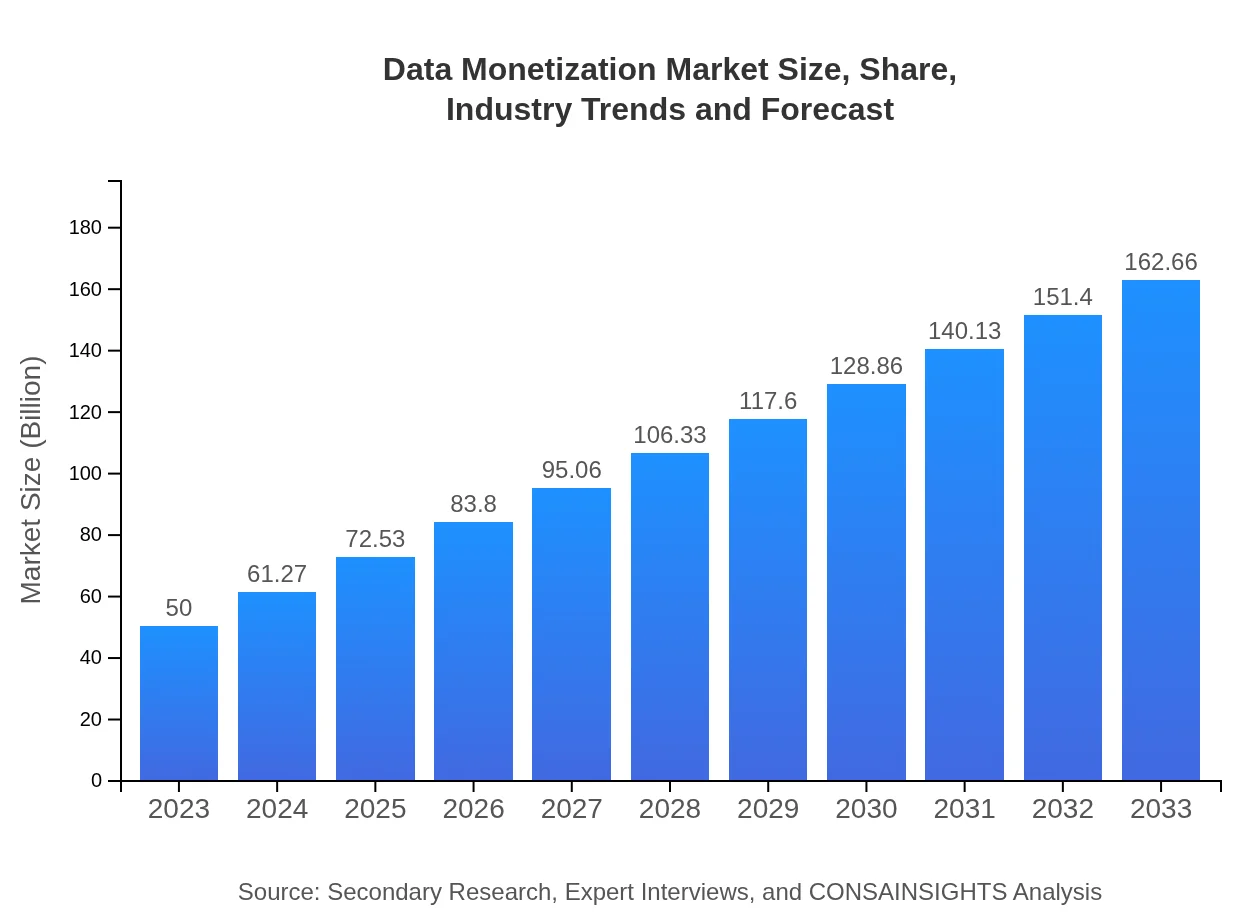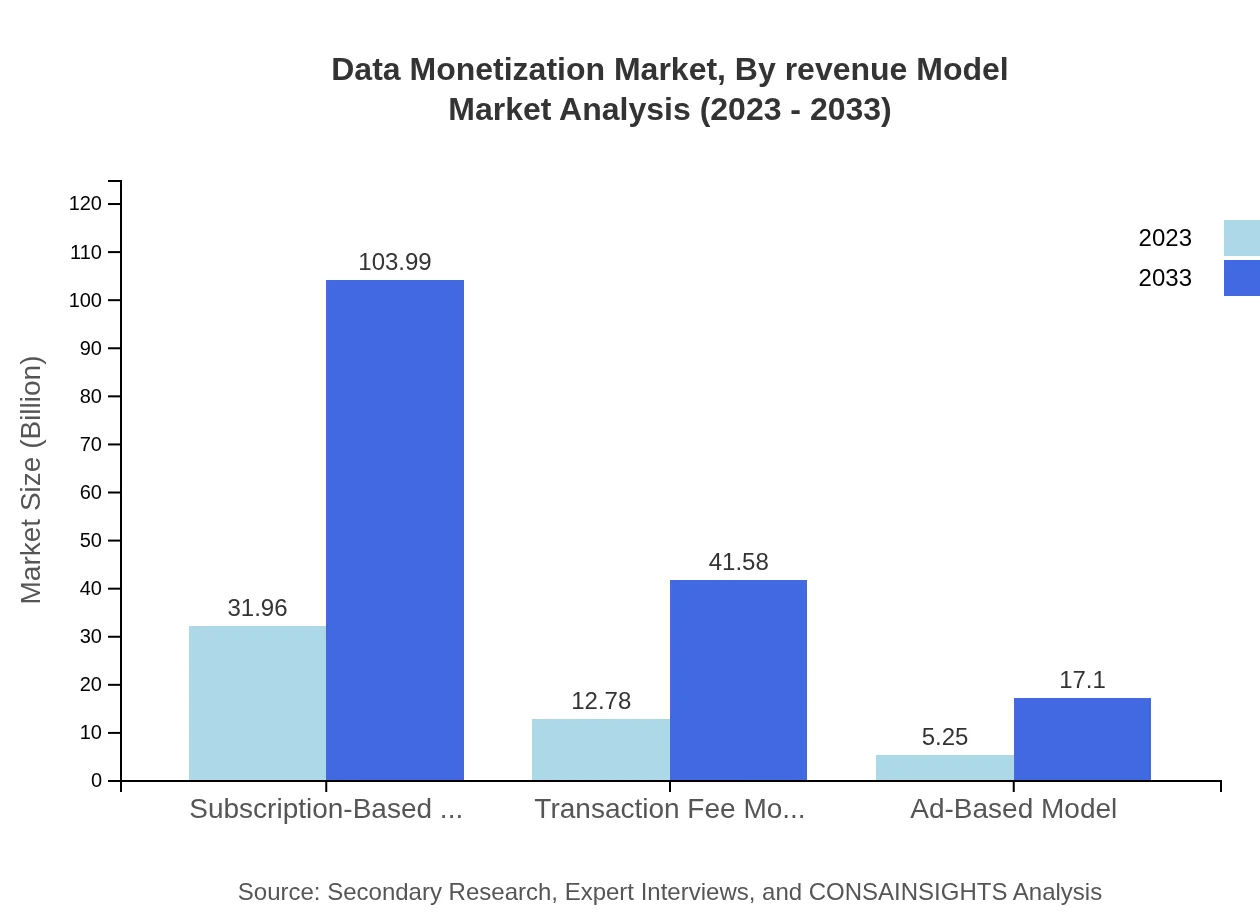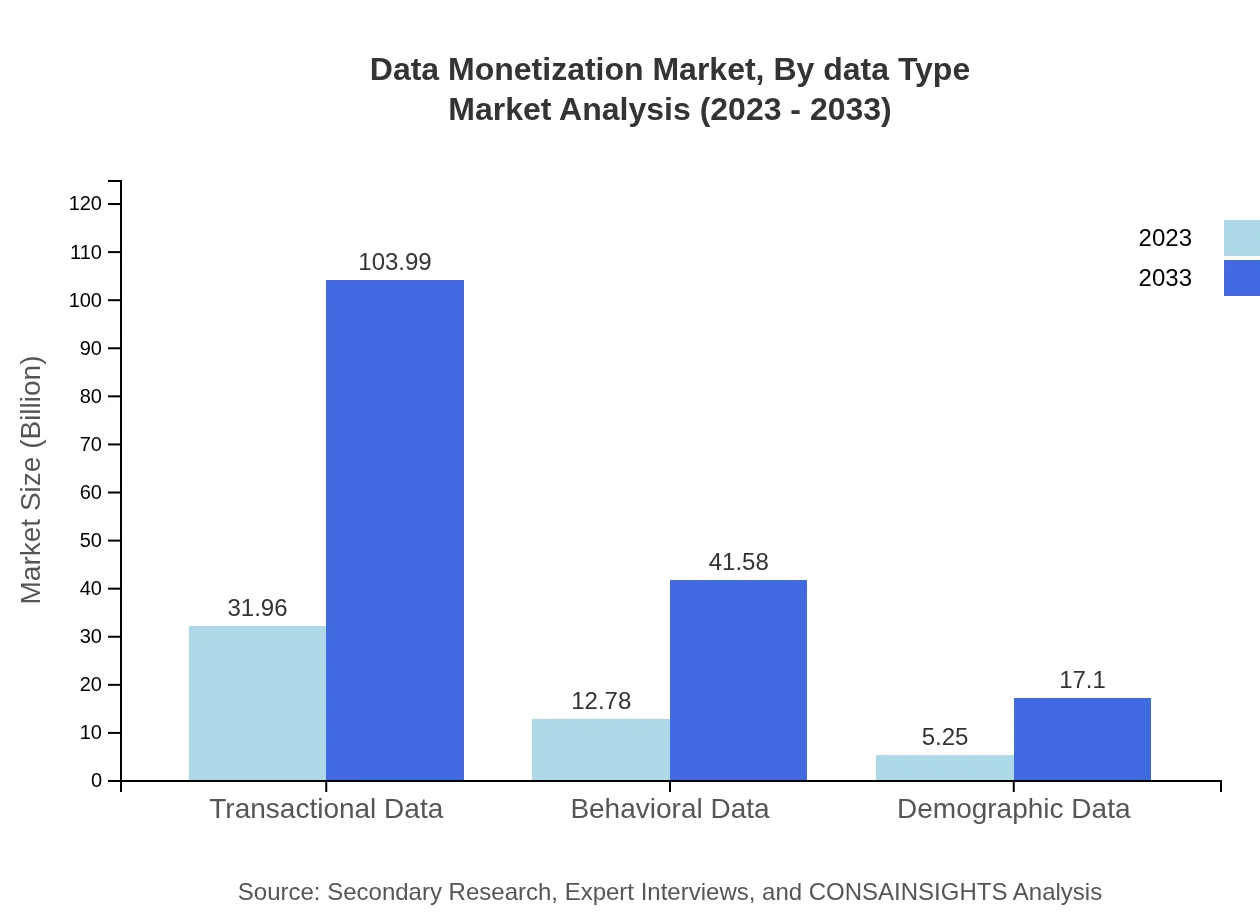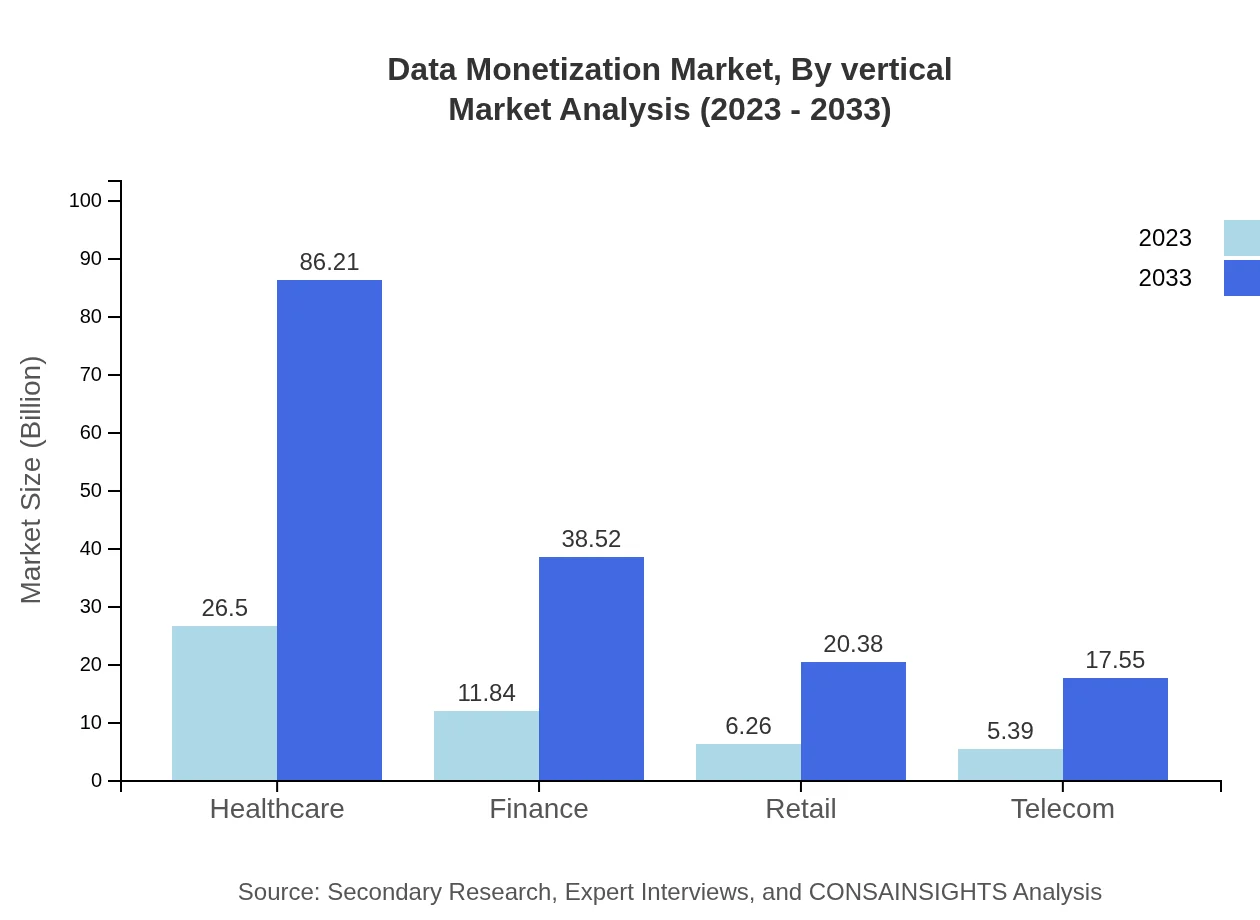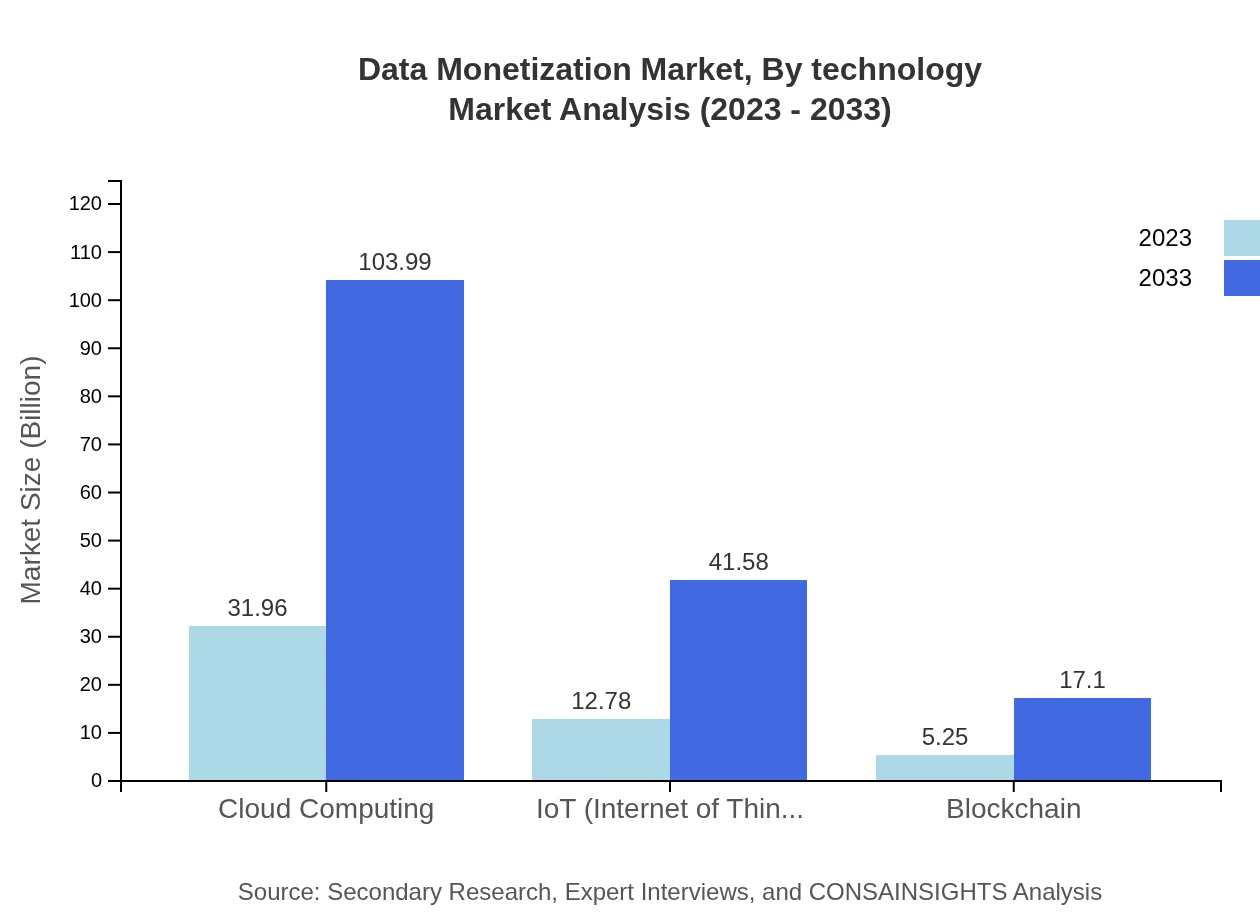Data Monetization Market Report
Published Date: 31 January 2026 | Report Code: data-monetization
Data Monetization Market Size, Share, Industry Trends and Forecast to 2033
This report analyzes the Data Monetization market from 2023 to 2033, providing insights into market size, growth trends, segmentation, and regional analysis. It focuses on key developments, technological impacts, and forecasts, equipping stakeholders with critical data for strategic planning.
| Metric | Value |
|---|---|
| Study Period | 2023 - 2033 |
| 2023 Market Size | $50.00 Billion |
| CAGR (2023-2033) | 12% |
| 2033 Market Size | $162.66 Billion |
| Top Companies | IBM, Microsoft, Amazon Web Services (AWS), SAP, Salesforce |
| Last Modified Date | 31 January 2026 |
Data Monetization Market Overview
Customize Data Monetization Market Report market research report
- ✔ Get in-depth analysis of Data Monetization market size, growth, and forecasts.
- ✔ Understand Data Monetization's regional dynamics and industry-specific trends.
- ✔ Identify potential applications, end-user demand, and growth segments in Data Monetization
What is the Market Size & CAGR of Data Monetization market in 2023?
Data Monetization Industry Analysis
Data Monetization Market Segmentation and Scope
Tell us your focus area and get a customized research report.
Data Monetization Market Analysis Report by Region
Europe Data Monetization Market Report:
In Europe, the market is valued at $17.89 billion in 2023 and is projected to grow significantly, reaching $58.22 billion by 2033. The focus on data privacy regulations, such as GDPR, shapes strategies for monetization, pushing companies to innovate.Asia Pacific Data Monetization Market Report:
In 2023, the Data Monetization market in the Asia Pacific is estimated at $8.75 billion, with projections to reach approximately $28.47 billion by 2033. This market is fueled by rapid digitalization and a growing emphasis on AI and big data analytics. Countries like China and India are at the forefront, leveraging data for innovative business solutions.North America Data Monetization Market Report:
North America's Data Monetization market stands at approximately $16.70 billion in 2023, expected to expand to $54.35 billion by 2033. The region is a leader due to the presence of key technology players and a well-established ecosystem for data sharing and monetization.South America Data Monetization Market Report:
The South American market for Data Monetization is valued at around $1.33 billion in 2023, anticipated to grow to $4.34 billion by 2033. The rise is driven by increased adoption of digital technologies among enterprises and the necessity to derive economic benefits from data.Middle East & Africa Data Monetization Market Report:
The Data Monetization market in the Middle East and Africa is set at $5.32 billion in 2023, forecasted to grow to $17.29 billion by 2033. The surge in mobile data usage and the adoption of cloud solutions are key factors driving this growth.Tell us your focus area and get a customized research report.
Data Monetization Market Analysis By Revenue Model
The revenue model segment showcases varying approaches such as subscription-based and transaction fee models, with subscription-based models projected to dominate, capturing over 63.93% of the market share by 2033.
Data Monetization Market Analysis By Data Type
As of 2023, transactional data leads the segment with a market size of $31.96 billion, projected to reach $103.99 billion by 2033. Other significant contributors include behavioral and demographic data, which also see substantial growth.
Data Monetization Market Analysis By Vertical
The healthcare sector shows a strong presence, with a market size of $26.50 billion in 2023, expected to rise to $86.21 billion by 2033. This indicates promising opportunities for enhanced data utilization across sectors like finance and retail.
Data Monetization Market Analysis By Technology
Technological advances in AI, machine learning, and blockchain are redefining the landscape. The integration of cloud computing enhances the accessibility and scalability of data monetization strategies.
Data Monetization Market Trends and Future Forecast
Tell us your focus area and get a customized research report.
Global Market Leaders and Top Companies in Data Monetization Industry
IBM:
IBM leads with its advanced analytics and data management solutions tailored for businesses to monetize their data effectively.Microsoft:
Microsoft provides comprehensive platforms for data storage and analytics, enabling enterprises to transform data into monetizable insights.Amazon Web Services (AWS):
AWS offers a range of cloud services focused on data analytics, supporting companies in harnessing their data for revenue generation.SAP:
SAP delivers enterprise solutions that enhance data connectivity and analytics, fostering new monetization opportunities.Salesforce:
Salesforce leverages customer data to drive revenue growth through innovative data monetization strategies across various sectors.We're grateful to work with incredible clients.









FAQs
What is the market size of data Monetization?
The global data monetization market is projected to reach USD 50 billion by 2033, reflecting a CAGR of 12%. This growth underscores the increasing reliance on data-driven strategies across various industries.
What are the key market players or companies in the data Monetization industry?
Key players in the data monetization industry include major technology firms, analytics companies, and data service providers. These entities leverage advanced analytics and innovative technologies to harness data value, catering to sectors like finance, healthcare, and retail.
What are the primary factors driving the growth in the data monetization industry?
Growth in the data monetization industry is driven by rising volumes of data generated, advancements in analytics technologies, and increasing dependency on data for strategic decision-making across sectors, ultimately enhancing competitive advantages.
Which region is the fastest Growing in the data Monetization?
The fastest-growing region in the data monetization market is Europe, with an expected market size increase from USD 17.89 billion in 2023 to USD 58.22 billion by 2033, capitalizing on robust data infrastructures and regulatory frameworks.
Does ConsaInsights provide customized market report data for the data Monetization industry?
Yes, ConsaInsights offers customized market report data for the data monetization industry, enabling clients to obtain tailored insights that fit their specific needs, facilitating better strategic decisions based on nuanced market conditions.
What deliverables can I expect from this data Monetization market research project?
Deliverables from the data monetization market research project include detailed market analysis reports, growth forecasts, competitive landscape insights, and comprehensive segmentation data to support informed business strategies.
What are the market trends of data Monetization?
Current market trends in data monetization include increased focus on transactional and behavioral data, growth in cloud computing, and the adoption of subscription-based models, highlighting the evolving monetization approaches within the digital economy.

